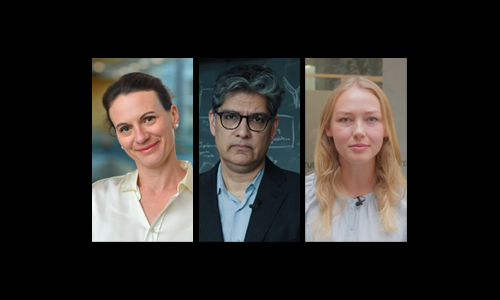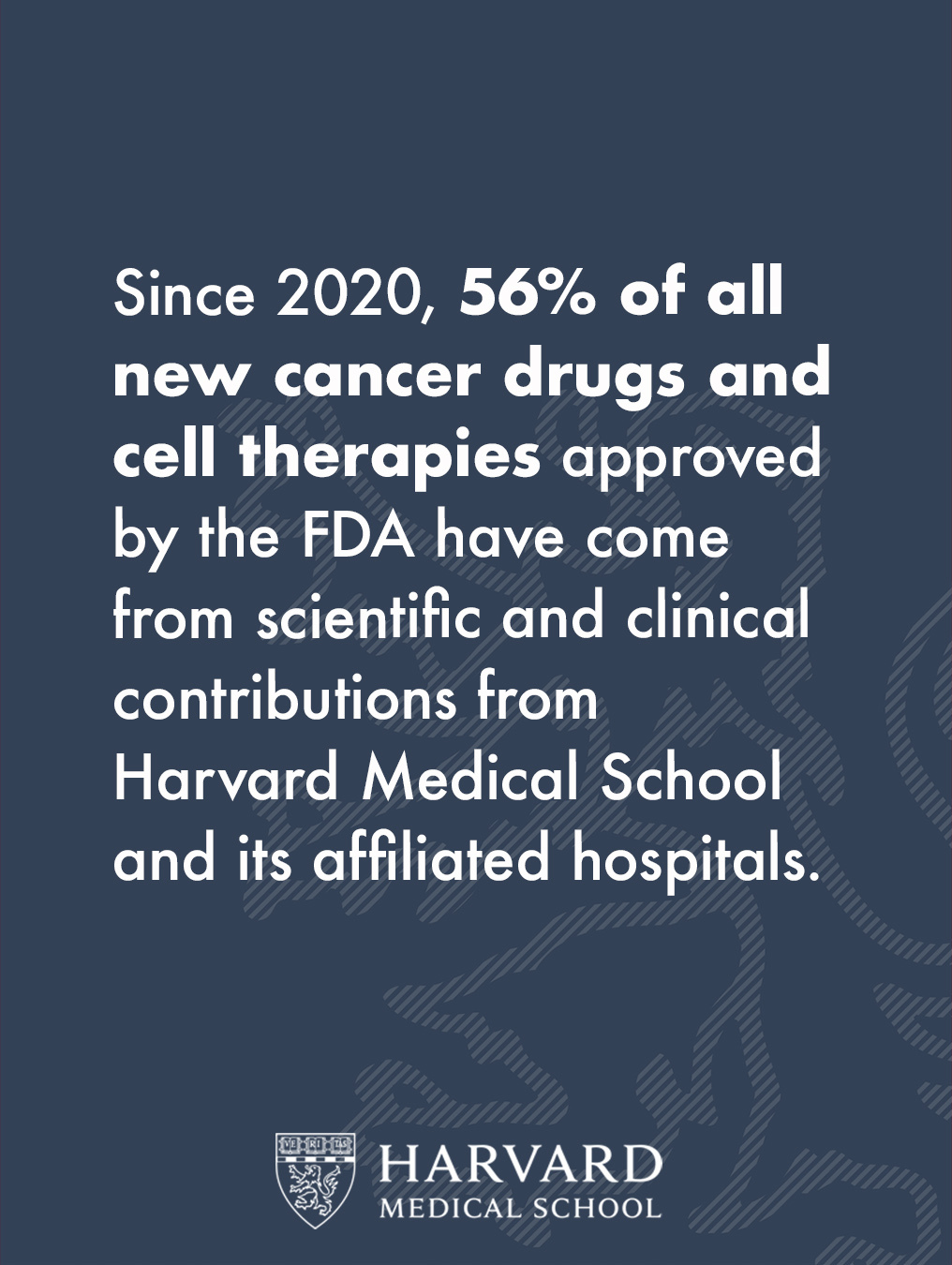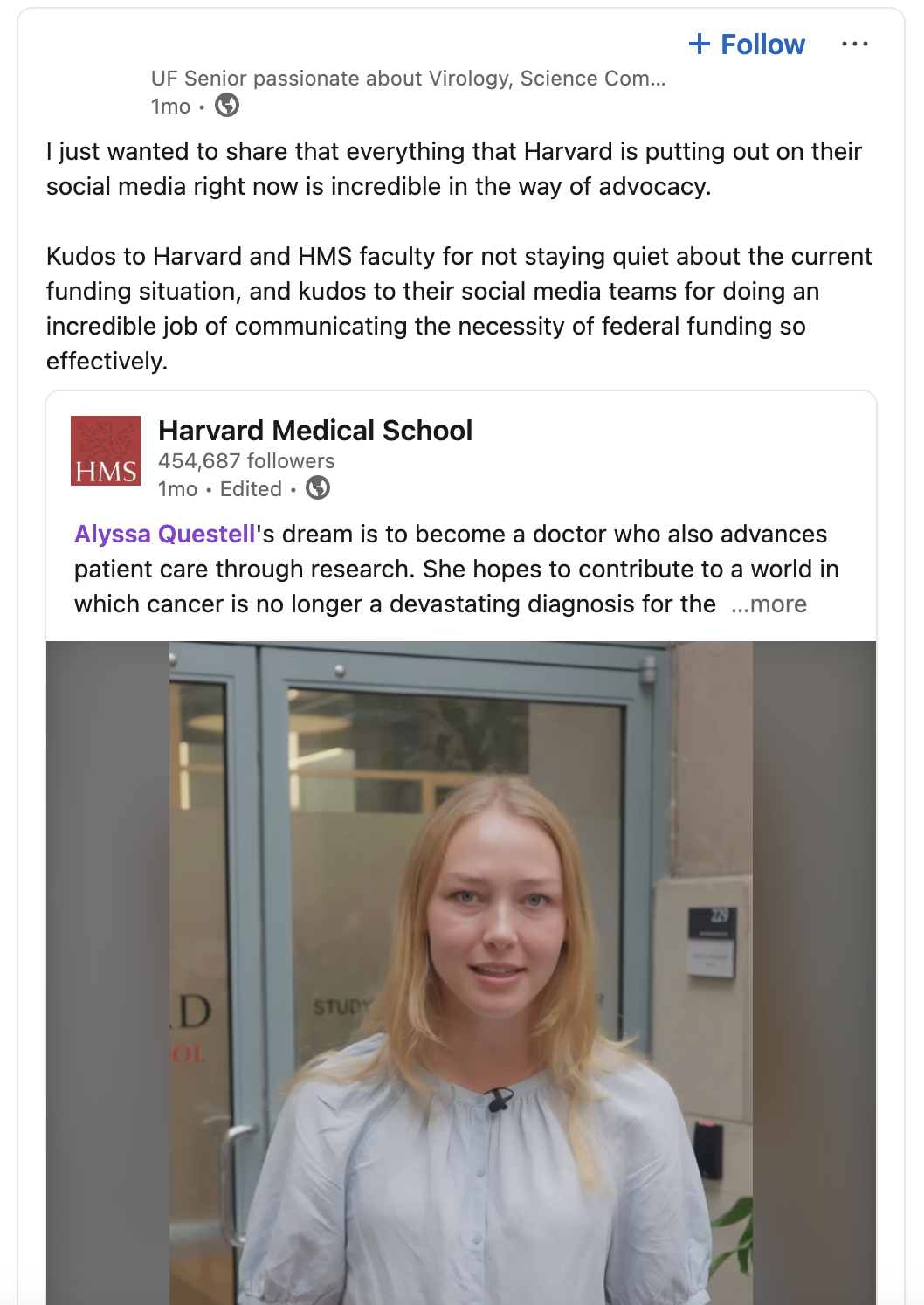
Harvard Medical School has a long history of transformative scientific advances that have improved, extended, and saved the lives of countless people – from the introduction of the smallpox vaccine to the world’s first CRISPR medicine (for sickle cell disease). Today, medical progress faces an existential threat due to actions by the U.S. government impacting science, higher education, and Harvard specifically.
In the 8 months since the Trump administration took office, numerous federal actions significantly threatened the future of HMS. These included not only withdrawn financial support for our research and training (350 federal grants and contracts representing $230 million annually, along with 230 outgoing subawards to collaborating institutions in 23 states and in Washington, DC), but also growing skepticism of science and a negative shift in brand perception of Harvard among some Americans.
As the communications team for Harvard Medical School, we rapidly sought to:
Communicate what’s at stake with promising research projects in laboratories at HMS that are currently in danger of ceasing operations. This includes the loss of progress toward new medicines, economic opportunity, and new talent to fuel the future U.S. research workforce
Address the misconception that Harvard has enough money to fund its own research enterprise
Clarify that federal grants are not gifts; rather, the U.S. government has identified these research projects as priorities for the American people and selected researchers at Harvard for this funding through a highly competitive process led by impartial peers
Enable actions that benefit HMS, including advocacy, giving, and recruitment
The “Research at Risk” campaign began in January 2025 and evolved significantly as the federal government’s attacks on science, higher education, and Harvard escalated over the following months. As a communications team, we continually adapted our storytelling to meet the moment.
Before the administration began directly targeting Harvard, from January to March we focused on building support for our science and educating on policy implications that we knew to be harmful to scientific progress (such as proposed budget cuts to the National Institutes of Health). We produced a video for Instagram, LinkedIn, and TikTok to explain what indirect costs of research look like at HMS, with clips of maintenance work, custodial services, and costly computing systems. We produced carousel-style posts for LinkedIn and Instagram with powerful examples of NIH-catalyzed basic discoveries at HMS that led to new medicines – from cancer immunotherapies to GLP-1 medicines. These assets were widely shared in social conversations on the government’s actions.
In April, the administration sent Harvard a letter with demands, which the University announced that it could not comply with, as it violated our institution’s academic freedom. The administration then retaliated by terminating 350 federal grants and contracts at Harvard. Harvard filed a lawsuit against these actions.
This series of events thrust Harvard Medical School to the forefront of the fight for higher education and government funding of science.
At this shocking moment, our strategy was clear: show the American people why the U.S. has long funded academic science to fuel new medicines and better health care for Americans, and urge them to voice their support for science that is in progress today.
We began taking audiences inside HMS labs to hear from those who have been directly impacted by the cuts – our scientists and students. Our content producers reached out to those who’d received grant terminations and invited them to either talk to us on camera for a short-form video, or on paper for a first-person perspective, if they were more comfortable in that format. The resulting stories are powerful, even if produced by our lean, in-house team. As the Boston Globe described it in a June article on the University’s response: “The university is not using an outside creative firm to mastermind a PR strategy; however, it is leveraging all sorts of channels and platforms...producing videos for the Harvard Instagram account that feature faculty whose research funding has been cut.”
Throughout the spring and summer, we continued to sharply focus on these efforts to humanize our scientists and convey the stakes if funding is not reinstated. We’ve further educated audiences by publishing feature stories, including one on the history of federal funding of science in the U.S., which began in 1945 to stave off the return of the Great Depression. We leaned into short-form video heavily, capturing the personal, emotional stories of researchers and trainees, detailing how funding loss has affected their projects, careers, and the future of science in America.
Our work has undoubtedly won the hearts and minds of some Americans.
We’ve read every comment on our social media posts as part of this campaign (of which there have been thousands). We routinely saw comments praising our team’s efforts. Additionally, we saw strong permeation of our key messages delivered in the content, as they were articulated in the comments. Though some comments were negative and perpetuated the misconceptions amplified by the federal government, for every one negative comment, there were at least three that moderated and corrected the misinformation. Over time, we have seen a thinning out of concerning themes and misconceptions in the comments, as well as continued replies to negative comments supporting HMS research.
Our quantitative data is also compelling. Over the course of the campaign, we’ve received more than 3 million views of our videos and 27,000 unique views of our written stories and first-person perspectives. Our federal affairs colleagues report success in leveraging our content in building advocacy. Our fundraising colleagues report 700 new, first-time donors showing support for HMS since April 2025, many of whom cited our storytelling.
In all, our data and reflection show that we’ve been successful in driving awareness of the critical role that scientific progress at HMS plays in making new medicines and improving health for all Americans, and in showing the detrimental impact funding cuts have had and will have on our ability to achieve breakthroughs and train the next generation of researchers in America.


